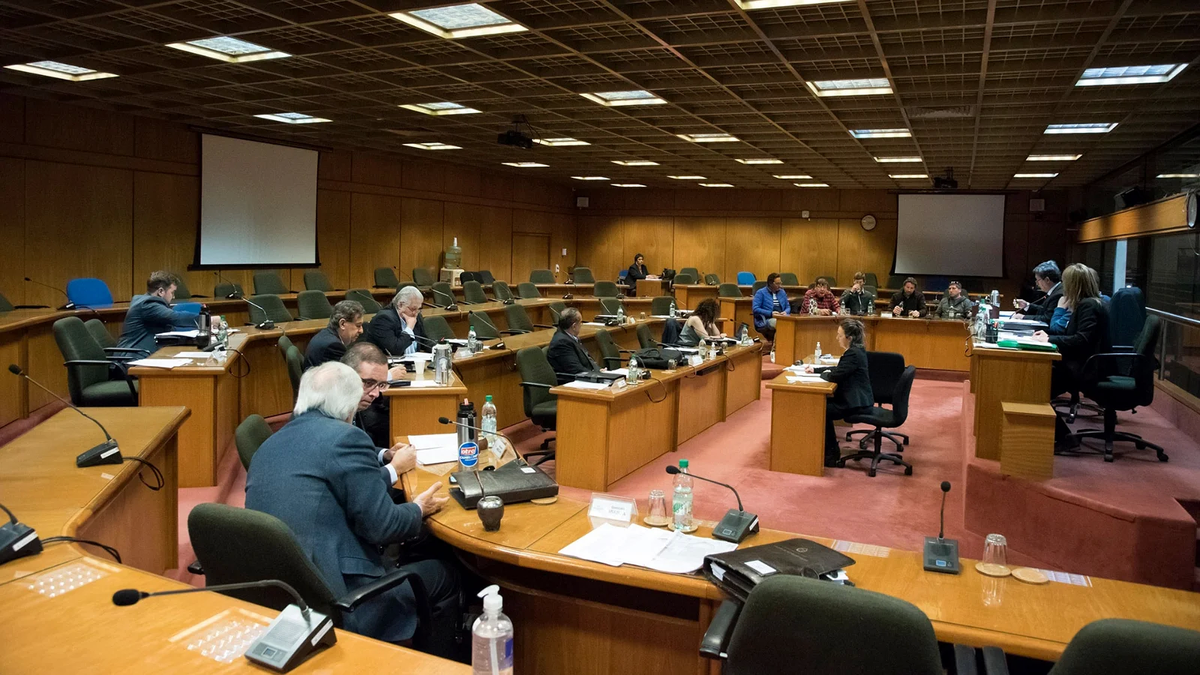The social security reform in Uruguay enters its final stretch, with just five days to finish debating the project promoted by the ruling party and definitively sanction it, as the president wishes Luis Lacalle Pou. In this context, internal negotiations continue with Open Town Hall (CA), that he does not have the same urgency as his coalition partners to vote for the reform.
Today the economic team meets again with the Special Commission with the intention of reaching definitive agreements with the deputies of the sector led by Guido Manini Rios and, if it goes well, the Executive Branch would later send the project with the changes officially —the draft was presented yesterday to legislators.
The immediate objective is to get the reform voted between Thursday and Friday in committee, so that it can then go to the plenary session of the Chamber of Deputies. And in the National Party (PN) they remain optimistic about getting a project that is “beneficial for the workers”, although they are still in talks with CA.
What are the changes presented by the Executive?
With the intention of reconciling positions with its most stubborn partners, the Executive Power yesterday presented the draft of the social security reform project with the changes announced last week by the Minister of Labor and Social Security (MTSS), Pablo Mieres.
Although there have been no changes to the “general architecture”, there are two key issues to iron out differences with its government partners: on the one hand, the adjustment of the limits and guarantees of investments abroad by the Pension Savings Fund Administrators (AFAP) to reduce its risks; and, on the other, the introduction of a 20-year convergence system for the subsystems and parastatal funds, as well as a special “window” for the Notarial Fund.
Other incorporated changes are the extension of the widow’s pension, the revision of the required years of marriage and concubinage to manage the pension cause and the incorporation of articles on situations of disability. Likewise, the possibility of incorporating the concerns expressed by organizations linked to the issue of disability was raised; and the reduction of the required years of residence for migrants to access the right to a pension.
Cabildo Abierto continues to put sticks in the wheel
However, for the Manini Ríos sector, the modifications are not enough, and they insist with their two fundamental changes: the “authorization to the AFAP to extract money from Uruguayans”, since “this money does not belong to the AFAPs” and it is risky for it to be taken out of the country or placed in the financial market; and the reduction to 25 to 15 years to calculate retirement in retirement.
Considering that the government has already warned that it will not negotiate the second point, and that it made modifications regarding the second that the Cabildo Abierto sees as insufficient, for the lobbyists they will not give the deadlines established by law for voting.
“I think that it will not give to vote this week, unless there were very substantial changes today, tomorrow, but I think that it will not give, “said Manini Ríos, in that sense. Likewise, he complained about the rush his coalition partners have to vote on the project. “The bulk of the law will only come into force in January 2033. What is the great urgency of approving it this week? Why can’t it be approved within a month, within six months or in the 25th year? There may be different options, there is no reason to be tied down or rushed, ”she said, and she did not even rule out that the social security reform ends up being voted on“ in the next administration if there is no agreement now ”.
Source: Ambito




